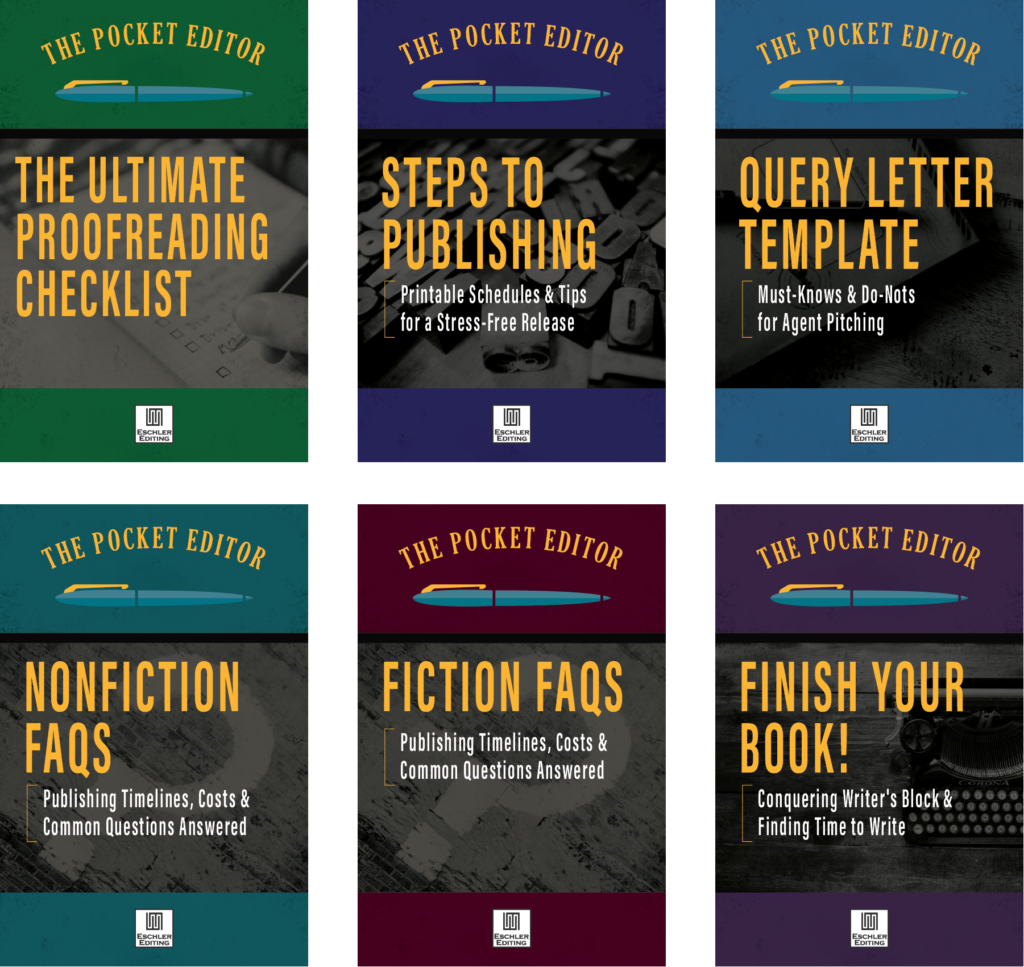Choosing the Right Tense
Hook Critique Series: Article 4, Part 1
By Angela Eschler and Heidi Brockbank
Welcome to our fourth article in our Hook Critique series, where we review authors’ opening pages to give them insight on whether they’re creating sufficient hooks for agents and/or readers. (To get the full scoop on what this series is all about, you can check out the series introduction here.)
This week we’re touching on several aspects of choosing the right tense, as well as discovering the difference between intriguing and confusing the reader.
Without further ado, let’s jump into this review.
* * *
Author: Taffy Lovell
Context: From her manuscript It’s Not Me. Taffy is currently looking for the right agent for this piece (see her revision page on our next post).
“Angelica!”
Again with the yelling. My sister seriously doesn’t get the idea of sleeping in. Or how mornings should be enjoyed in peace and—
“You said you’d drive today!”
Yeah. Yeah.
I glance at the digital Mickey clock and groan; I could have slept in twenty more minutes.
I woke all twisted up in my sheets. Norma came to me last night in my dreams. My shrink told me to write down any memories that surface. Dreams included. But what if I don’t like what I remember?
My stomach grumbles, and I decide it’s okay to get up now. My computer desk is a mess. I put away the scissors and newspaper from yesterday. The obituaries can wait. One clipping falls. I pick it up and see me. John Birch’s trench coat is thrown over my little sister and me. He’s trying to shield us from the snooping cameras. The caption reads “Teen Serial Killer or Innocent Bystander?”
I throw the paper in the red shoebox and stuff it in the closet before I slide on my cleanest jeans from off the floor. One quick check in the mirror tells me my hair is its usual mess. I flip my head over, rub my hands through and straighten up. That’s how I roll.
The shirt I wore to bed reeks like last night’s Chinese takeout. Not how I roll. I spy a black piece of fabric peeking out from beneath my pillow. I pull my favorite AC/DC vintage t-shirt close and inhale. I pretend it smells like Aiden. I haven’t lost memories of him.
* * *
The Advice
A Good Hook
In today’s fast-paced world of instant messaging and speed dating, a good story has a very limited time to convince a reader to stay and get to know it better. A writer usually has five pages or less (think of how many books you’ve browsed through at the library or bookstore and set down after less than a page) to sell the reader on what a fantastic adventure awaits them if they will commit to the relationship and read the book. This story grabs the reader’s attention right away with the main character’s unique voice and with the dreams of Norma and the obituaries on the desk. Why would a teenage girl (we assume the narrative protagonist is a girl based on the sister calling her name, and teenage based on the character’s sarcasm) be clipping obituaries?
And a Promise
A good hook contains an unspoken promise that the story will continue to shed light on the mysterious, marvelous, or magical things that have been only hinted at. Let’s take a look at one of these:
Norma came to me last night in my dreams. My shrink told me to write down any memories that surface. Dreams included.
- This is intriguing. Especially the name Norma, which wouldn’t seem to belong to a friend her age or anything. It’s okay to leave this a little mystery for the moment, but you’ll want to make sure there’s some follow-up explanation pretty quickly after the first page, maybe like in dialogue between the sisters as they talk about the Norma dreams or something.
- Regarding the Norma paragraph and the obituary/serial killer paragraph: These add a good deal of mystery to your first page and make some solid hooks, but you don’t want to leave the reader hanging too long wondering what this is all about. Make sure this is a real hook, immediately connected to the story, and not a smokescreen hook designed to pique our interest so you can then avoid answering these questions for pages on end while slowly developing your story chronolgically. Failing to address any of these points very soon after your opening makes your story confusing rather than intriguing.
Thoughts on Present Tense
- Present tense is one of the least-used tenses for fiction writing, though it is admittedly on the rise. Recently there have been dozens of books, especially in the literary and YA genres, that have employed this tense, but it has some definite drawbacks, so use it with caution and know why you are using it. For instance, many writers, editors, and readers do not like this style. Obviously that doesn’t mean all editors or you wouldn’t see it in print (and anything that makes money changes the trend of what people like). Does this mean you should never do it? In the craft of writing, there are exceptions to every rule. Present tense may end up being a workable choice for your story (I feel it’s generally working for these first few pages because you have a lot of internal dialogue, so the flow between external and internal isn’t interrupted as much as it would be in other books trying to use this tense ineffectively, and because your character has strong voice within both the internal and external parameters); but you shouldn’t select it simply because it feels edgy or trendy.
- In English, past tense is the accepted form for most narrative, whether we are writing the Great American Novel or filling out the accident report on our fender bender. It is the style people slip into most often when recounting their own personal stories. Think about it: We say, “Guess what I did?” not “Guess what I do?” We’ve been unconsciously trained our entire lives to feel comfortable with past tense, and that is still the rule, even though television and film have probably played a role in the increased use of present tense these past few years (in terms of the speed at which the narrative unfolds).
- One reason writers use present tense is they think it will help keep the story very immediate for the reader, thereby increasing suspense. Handled with care, present tense can accomplish that. At the same time, the majority of books ever written have employed past tense, and many of those have masterfully kept the suspense high and the reader hanging on every word and scene, proving that present tense isn’t a requirement for maximizing tension and keeping the suspense cranked. Even keeping a main character’s life-or-death outcome a mystery can be done in past tense. But let’s face it: most readers are going to assume that the main character lives, regardless of which tense you are employing, so writing in present tense isn’t going to make a big dent in the readers’ assumptions. (As for actually killing the main character off and keeping it hidden from the readers – well, that’s a move you do at your own risk. Think readers with pitchforks and torches coming to get their vengeance on your word processor.)
In addition, present tense limits perspective opportunities in the story. Award-winning author Philip Pullman has this advice for writers considering present tense:
I want all the young present-tense storytellers (the old ones have won prizes and are incorrigible) to allow themselves to stand back and show me a wider temporal perspective. I want them to feel able to say what happened, what usually happened, what sometimes happened, what had happened before something else happened, what might happen later, what actually did happen later, and so on: to use the full range of English tenses.” (“Philip Pullman Calls Time on the Present Tense,” The Guardian, September 17, 2010)
So while you have creative license to use any tense you want, consider using the tense that will appeal to the greatest number of readers and give you the most freedom in developing your story. One option you may consider is to use present tense for things such as a prologue/character introduction (Dean Koontz does a nice segue from first-person present to first-person past in the introductory chapter of Odd Thomas; The Night Circus
effectively does this with second person) or for a dream sequence. Again, for this particular voice and story thus far, I think it’s working. (But consider these comments “food for thought” for all readers of the blog today.)
In short, if you find (through professional-esque feedback as well as your own opinion) that you are using present tense effectively and with good reason, go for it; but if you are limiting the narrative just to be trendy, reconsider.
Curiouser and Curiouser: A bit more on making sure intriguing doesn’t become confusing.
The caption reads “Teen Serial Killer or Innocent Bystander?”
This is all interesting, but this clipping obviously isn’t an obituary, so it would be helpful to clarify (“A clipping from another section of the paper falls”) because readers are trying to figure out how that would be in the obituary section. The headline pulls the reader in with unanswered questions – is it referring to our narrator? If so, a potential killer named Angelica? Her sister? Someone else? And who is John Birch and what is his relationship to the sisters? This paragraph does a great job at packing a lot of fascinating information into a short space (which is just what you want for a first page), but might be walking the line in terms of offering too much information for the reader to keep up. At this point, I am definitely curious, but my little red too-much flags are ready to wave.
Just make sure that you don’t put in intrigue that is too much for the space allotted, making it confusing instead. For instance, there might be just a tad too many names (character intros), hints of mystery, and intriguing concepts jammed into this first page. Confusing a reader in the first pages is a bad idea since you risk losing them to a head scratch and another selection off the proverbial shelves. Since you’re on the border, consider if there’s a simpler way to hint at all this delicious mystery without overwhelming the reader with the sense they aren’t keeping up.
Conclusion
That’s how I roll.
The narrator has a great voice, with an assurance that is unusual for someone her age. Definitely a captivating beginning. Angelica is interesting, her background is interesting, and we’re intrigued to see where the sisters are going and what their lives are all about. At this point there’s nothing clearly at stake for the character, but the hints, and her hook-me background make up for that, I think. Just make sure to have the “what’s at stake” part of the hook come up pretty soon after the first page and keep the intrigue out of the confusing camp. If you keep working on refining your execution (how your prose conveys all this interesting info with flair and word economy), I can definitely see an agent turning the page to see what’s next.
Best of luck!
Angela Eschler and Heidi Brockbank
* * *
NOTE: This critique was originally posted on author Julie Bellon’s First-Page Friday blog. Every Friday, Julie posts an author’s first page, which is critiqued by “Ms. Shreditor” (a senior editor in the New York area) or Eschler Editing. If you’d like a critique, submit your first page, double-spaced in 12 pt. font, to juliecoulterbellon@gmail.com with “First-Page Friday” in the subject line. Then watch her blog and await your place in the queue.
Stay Tuned …
We’ll be posting Taffy’s final draft later this week and hearing from her on what she learned in the process. In the meantime, you can check out what she writes here:
Taffy Lovell
Taffy’s Writing
Wrapup
Let’s hear from you. What is your favorite tense – or favorite example of rule-breaking tense – and why? We’d love to know, so comment below!





It was a great hook, but good advice on the present tense. I’ve only seen it done once or twice where it didn’t bug me. Even with The Hunger Games, I read it back in the day before it became huge, I kept calling my friend telling her that I was reading the book that was driving me crazy because it was written so awkwardly, but in this case I pushed on because the story was worth it–but with Mocking Jay I admit, I skimmed a lot because I wanted to know how the trilogy ended, butI hated the book, and thus the writing just bugged me each time I picked it up. In the case of this hook it didn’t bother me so far, so I’d be willing to go on. Hope an agent is! Best of Luck!
Thanks, ladies! I have some work to do! I appreciate the feedback.
I used to really be bugged by present tense too, but for some reason it’s worn me down and it doesn’t bother me as much–though with the caveat that it has to be in the right voice and story. I think it can be unique, but it really does have to go with a certain type of story because it really informs the creation of the POV character. I’m liking it just fine in Taffy’s story. So I think it will be a good choice. I’m excited to see the next draft!
I really liked this hook, in spite of present tense. It definitely caught my attention. As for present tense, I do think that past tense can offer a wider range of options and nuance, but in the world of writing, rules just beg to be broken sometimes. You just want to be sure you know the pros and cons of each tense, and which tense will best help you accomplish your story goals. Can’t wait to see more of this story!
Sabine, it’s funny that you brought up Hunger Games, because I thought of it immediately. For me, Hunger Games worked in present tense, and yet present tense bugs me in every other book I’ve read. It fit Katniss for me, who has a difficult time looking ahead and looking behind. For me, it was a natural extension of her character. However, I think that because present tense is less conversational, it’s more difficult to hook a reader. You have to have a strong character like Katniss, and a unique, intriguing plot like the Hunger Games, in order for it to work. I had to stretch to accept it, and I pushed through the first chapter. By the end of that chapter, I was hooked. But I’m not always that patient. I did read it after it began to be popular. Honestly, I’m not sure I would have pushed through that first chapter if I hadn’t already heard that the plot was crazy good.
That being said, I can see where it could work with Taffy’s example. Clearly, we have a character with a strong voice and an intriguing past. But, I’m not won over yet. I guess I expect more from present tense because it feels so unnatural. I would continue reading Taffy’s piece at this point, though. That’s a good sign. 🙂 I look forward to the revision!